2015 Books in Review
The Walking Dead Omnibus Volume 2 by Robert Kirkman and Charlie Adlard
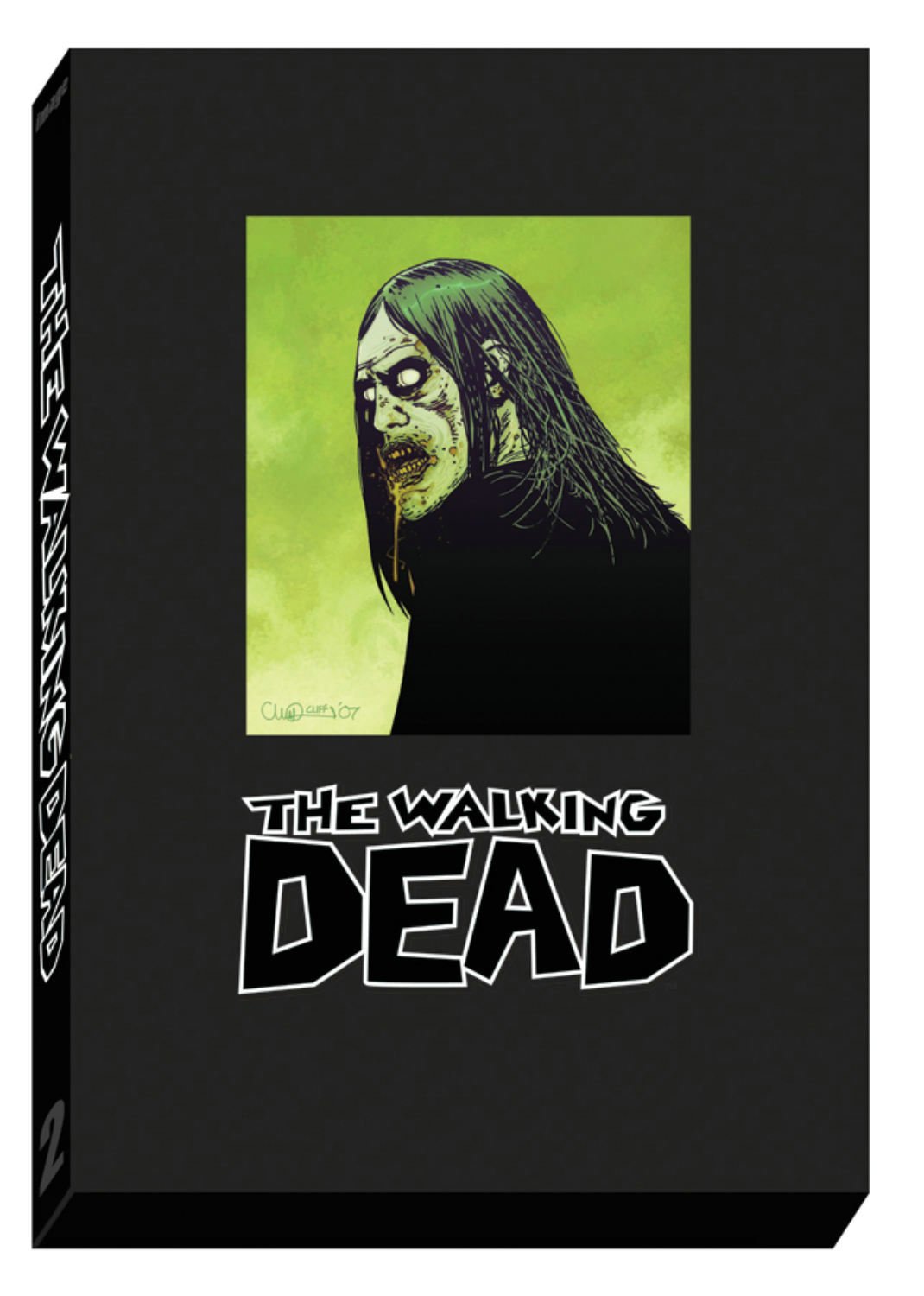 This was my second time reading through The Walking Dead collection of omnibuses, and this volume is easily the most memorable. By a long shot. It’s relentless, breakneck, and leaves off with one of the best, and admittedly worst, cliffhangers I’ve read in comics. It’s a shame the show couldn’t quite capture the horror and pure suffering of that moment.
This was my second time reading through The Walking Dead collection of omnibuses, and this volume is easily the most memorable. By a long shot. It’s relentless, breakneck, and leaves off with one of the best, and admittedly worst, cliffhangers I’ve read in comics. It’s a shame the show couldn’t quite capture the horror and pure suffering of that moment.
The Walking Dead Omnibus Volume 3 by Robert Kirkman and Charlie Adlard
 Reading this through for the second time, this is where I caught up to the show. It’s interesting to see the dichotomy between the two, and worth noting a few of the scenes I’d thought rather brilliant on the show actually stemmed from the comic, though I didn’t remember them. And the parts that did not come from the comic? By far the weakest of the show.
Reading this through for the second time, this is where I caught up to the show. It’s interesting to see the dichotomy between the two, and worth noting a few of the scenes I’d thought rather brilliant on the show actually stemmed from the comic, though I didn’t remember them. And the parts that did not come from the comic? By far the weakest of the show.
The Walking Dead Omnibus Volume 4 by Robert Kirkman and Charlie Adlard
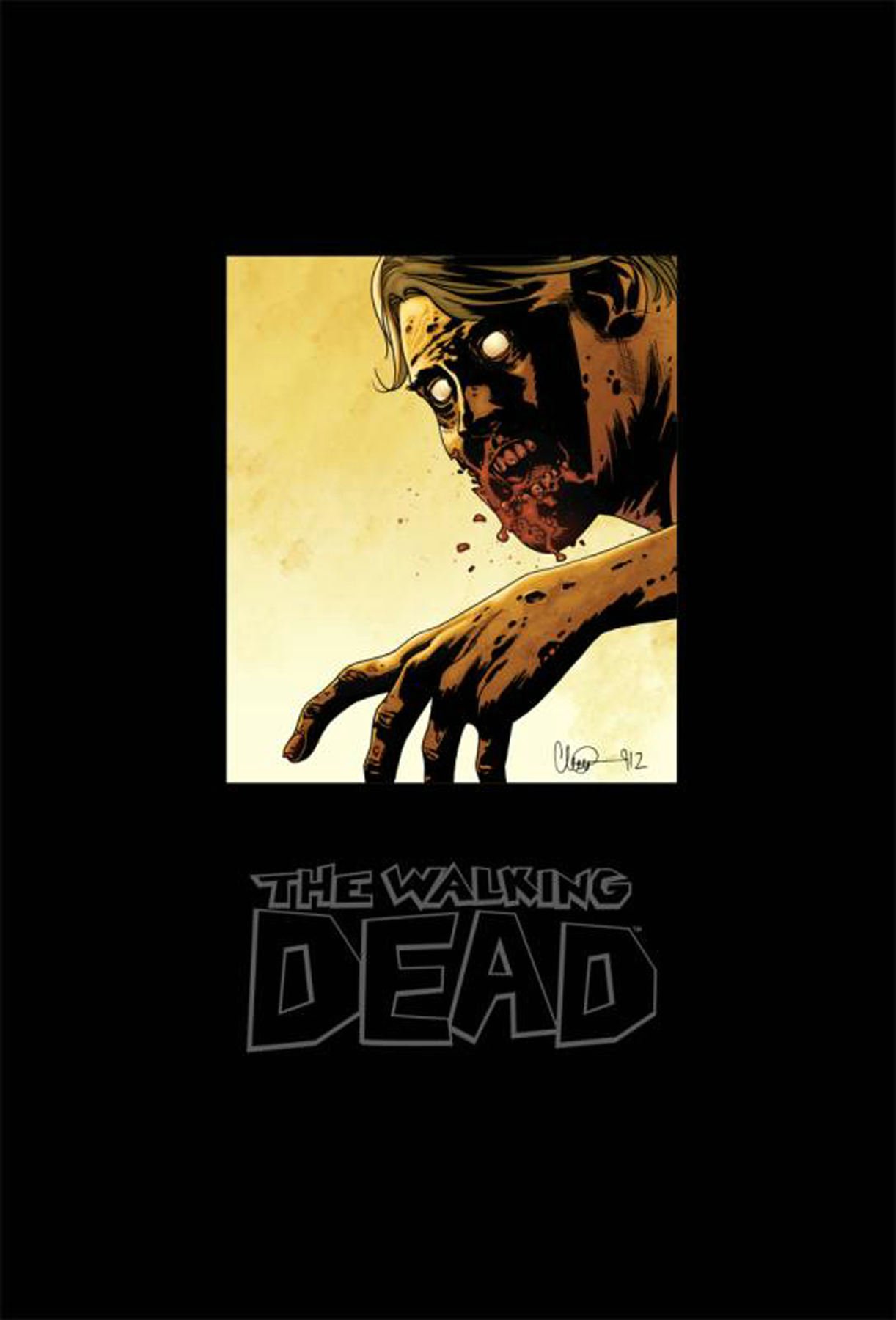 This volume is almost entirely set up (which leads me to wonder about the current season of The Walking Dead and where it’s headed), particularly the last of the four chapters. There were a few amazing standout moments, though, and the backmatter is nice, what little there is. I was hoping the Michonne story from Playboy would be reprinted, though, especially since it’s mentioned. But no dice.
This volume is almost entirely set up (which leads me to wonder about the current season of The Walking Dead and where it’s headed), particularly the last of the four chapters. There were a few amazing standout moments, though, and the backmatter is nice, what little there is. I was hoping the Michonne story from Playboy would be reprinted, though, especially since it’s mentioned. But no dice.
Harry Potter and the Prisoner of Azkaban by J.K. Rowling
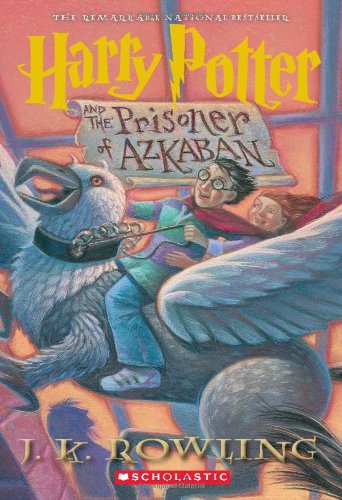 If any book in the series can really be pointed to as the one to cement Harry Potter’s place in literature, I’d have to say it’s this one. This is where everything really starts to take shape and build beyond its childish foundations, exploring some far darker and humanistic themes compared to the first two. This book also led to arguably the best of the film adaptations, so extra kudos for that.
If any book in the series can really be pointed to as the one to cement Harry Potter’s place in literature, I’d have to say it’s this one. This is where everything really starts to take shape and build beyond its childish foundations, exploring some far darker and humanistic themes compared to the first two. This book also led to arguably the best of the film adaptations, so extra kudos for that.
The Walking Dead Omnibus Volume 5 by Robert Kirkman and Charlie Adlard
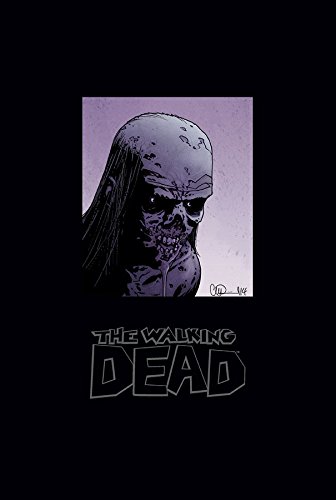 Now that’s more like it! This is one hell of a volume, hitting like a ton of shit-stained bricks right from the get-go with an insanely emotional hook. My only issue, and it’s pretty mild after such a wild ride, is that this volume cuts halfway through a twelve issue arc. Also, the lacking extras in the back make this “definitive” edition of the series not quite feel like one.
Now that’s more like it! This is one hell of a volume, hitting like a ton of shit-stained bricks right from the get-go with an insanely emotional hook. My only issue, and it’s pretty mild after such a wild ride, is that this volume cuts halfway through a twelve issue arc. Also, the lacking extras in the back make this “definitive” edition of the series not quite feel like one.
Different Seasons by Stephen King
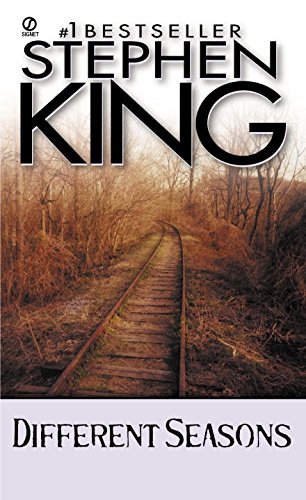 This book offers very different stories from King, although they’re obviously some of his best (and most easily adaptable) tales. “Rita Hayworth and Shawshank Redemption” was a bit weak compared to The Shawshank Redemption, which consolidated the characters and made for a better dramatization. “Apt Pupil” was dark as all heck, but probably my favorite of the bunch—and the most consistent. I really need to see the film version. If you’ve seen The Stand, “The Body” was generally on par it, with each great in their own way. “The Breathing Method,” the only one yet to be adapted, was the weakest of the bunch, and unlike the other stories, felt rather incomplete. It was something of a letdown after the two middle shorts.
This book offers very different stories from King, although they’re obviously some of his best (and most easily adaptable) tales. “Rita Hayworth and Shawshank Redemption” was a bit weak compared to The Shawshank Redemption, which consolidated the characters and made for a better dramatization. “Apt Pupil” was dark as all heck, but probably my favorite of the bunch—and the most consistent. I really need to see the film version. If you’ve seen The Stand, “The Body” was generally on par it, with each great in their own way. “The Breathing Method,” the only one yet to be adapted, was the weakest of the bunch, and unlike the other stories, felt rather incomplete. It was something of a letdown after the two middle shorts.
Jurassic Park by Michael Crichton
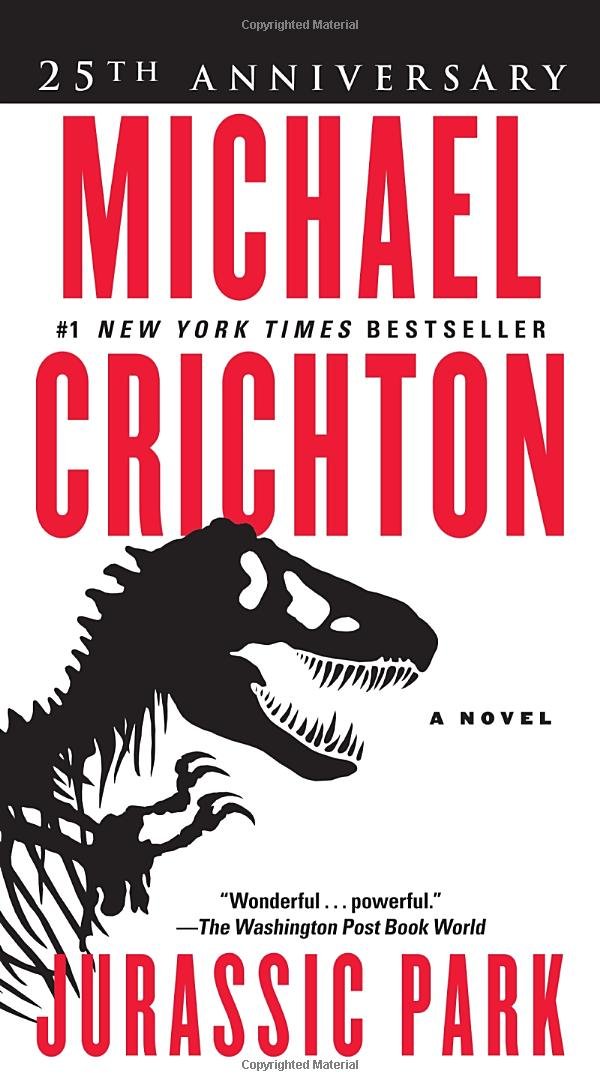 I’d forgotten just how much more gruesome this book is compared to its adaptation. It’s also far more technical, which is par for the course with Crichton. Interestingly, the ending leaves far less room for a sequel than the film, but we all know how that went.
I’d forgotten just how much more gruesome this book is compared to its adaptation. It’s also far more technical, which is par for the course with Crichton. Interestingly, the ending leaves far less room for a sequel than the film, but we all know how that went.
The Lost World by Michael Crichton
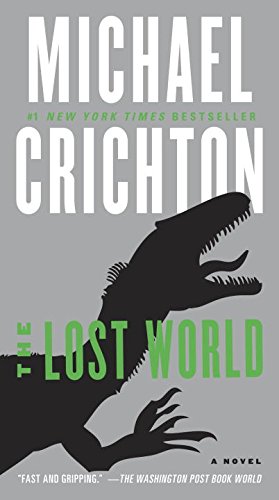 Reading this back-to-back with Jurassic Park was a bit of a bad idea, as Crichton’s style changed dramatically between the two—from cold, methodical and overly technical to character-centric, loose and almost incoherent. Really, The Lost World reads like an early Dan Brown novel, and I don’t mean that as a compliment.
Reading this back-to-back with Jurassic Park was a bit of a bad idea, as Crichton’s style changed dramatically between the two—from cold, methodical and overly technical to character-centric, loose and almost incoherent. Really, The Lost World reads like an early Dan Brown novel, and I don’t mean that as a compliment.
21st Century Tank Girl by Alan Martin, Jamie Hewlett, et al.
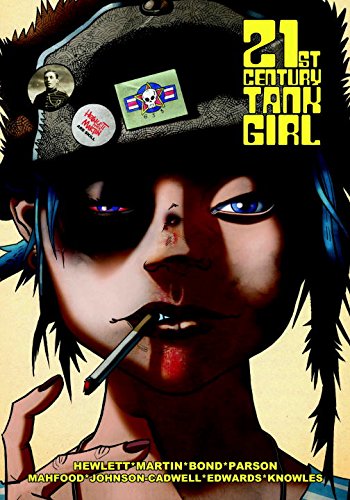 I’d never read Tank Girl before, but I love the movie despite its flaws and have loved Jamie Hewlett’s work since the Gorillaz’ debut, so I, of course, backed this beauty on Kickstarter. And I’m glad I did. Though parts of the anthology are bit more miss than hit, it’s a visually entertaining tour through the character’s psyche and a truly well-made book to boot.
I’d never read Tank Girl before, but I love the movie despite its flaws and have loved Jamie Hewlett’s work since the Gorillaz’ debut, so I, of course, backed this beauty on Kickstarter. And I’m glad I did. Though parts of the anthology are bit more miss than hit, it’s a visually entertaining tour through the character’s psyche and a truly well-made book to boot.
Fade In: From Idea to Final Draft – The Writing of Star Trek: Insurrection by Michael Piller
 Though it was never formally published, every Star Trek fan owes it to themselves to give this a read (go ahead, it's free). Piller, after all, played a hefty role in what made the series so wonderful around the TNG and DS9 era, and this behind-the-scenes look into what may be one of the weaker film entries truly brings some interesting facts that will have you wondering what could have been. And it’s a quick read—at nearly 250 pages, I still finished it in less than a day
Though it was never formally published, every Star Trek fan owes it to themselves to give this a read (go ahead, it's free). Piller, after all, played a hefty role in what made the series so wonderful around the TNG and DS9 era, and this behind-the-scenes look into what may be one of the weaker film entries truly brings some interesting facts that will have you wondering what could have been. And it’s a quick read—at nearly 250 pages, I still finished it in less than a day
Star Trek Memories by William Shatner with Chris Kreski
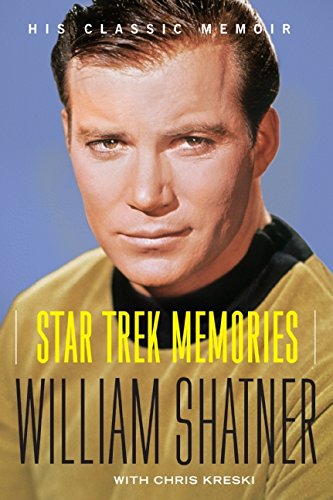 Part personal memoir, part documentary on the production of the original Star Trek series, this book shed light on many aspects of the show I hadn’t previously known, and while it could have gone a bit further, it was a lovely ride down memory lane.
Part personal memoir, part documentary on the production of the original Star Trek series, this book shed light on many aspects of the show I hadn’t previously known, and while it could have gone a bit further, it was a lovely ride down memory lane.
Harry Potter and the Goblet of Fire by J.K. Rowling
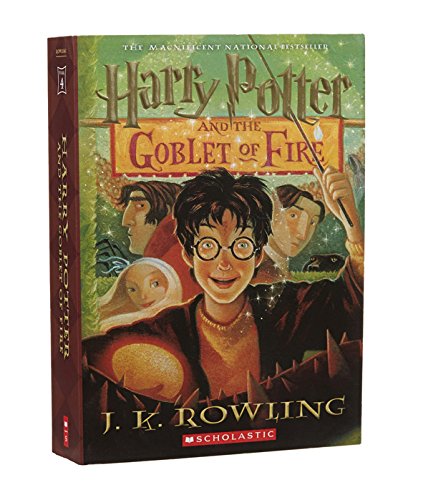 Poor Cedric. I really felt for the kid this time round, far more so than in my previous reading or ever from the movie. Goes to show you how subsequent re-readings can be helpful. His demise also brought me a bit out of my comfort zone in regard to this series, though only so much—the more typical trappings of the earlier books remain, and it’s really not until the next book that Rowling goes zero dark thirty.
Poor Cedric. I really felt for the kid this time round, far more so than in my previous reading or ever from the movie. Goes to show you how subsequent re-readings can be helpful. His demise also brought me a bit out of my comfort zone in regard to this series, though only so much—the more typical trappings of the earlier books remain, and it’s really not until the next book that Rowling goes zero dark thirty.
The Goldfinch by Donna Tartt
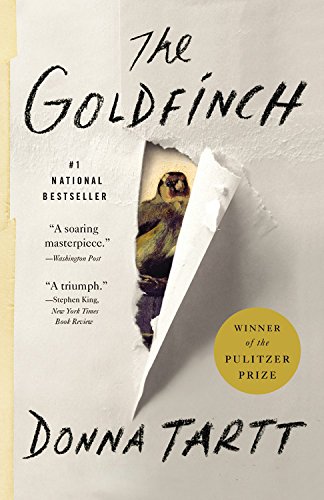 Recommended by a coworker, this was a weird book, and made me realize, more than anything else, how prominent horn-rimmed glasses are in literature. It’s like no one knows another descriptor or another type. What’s up with that? This book also didn’t have much of an ending, though the path to get there was fun and fancy free regardless of its tendency to edge into that absurd secret-that-could-simply-end-the-book-at-any-moment territory.
Recommended by a coworker, this was a weird book, and made me realize, more than anything else, how prominent horn-rimmed glasses are in literature. It’s like no one knows another descriptor or another type. What’s up with that? This book also didn’t have much of an ending, though the path to get there was fun and fancy free regardless of its tendency to edge into that absurd secret-that-could-simply-end-the-book-at-any-moment territory.
The “Genius” by Theodore Dreiser
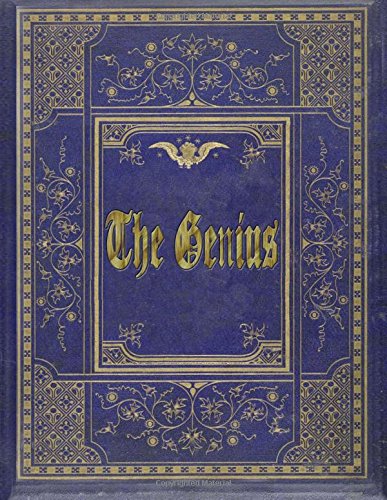 An odd book, this is reportedly very autobiographical in nature, with the afterword included in this edition noting how it required several adjustments after being written while Dreiser was still reeling from the recounted events. Really, that’s no way to reflect on something, and the ambling, repetitive and, at times, boring nature of the narrative gives us our reason why.
An odd book, this is reportedly very autobiographical in nature, with the afterword included in this edition noting how it required several adjustments after being written while Dreiser was still reeling from the recounted events. Really, that’s no way to reflect on something, and the ambling, repetitive and, at times, boring nature of the narrative gives us our reason why.
The Eyes of the Dragon by Stephen King
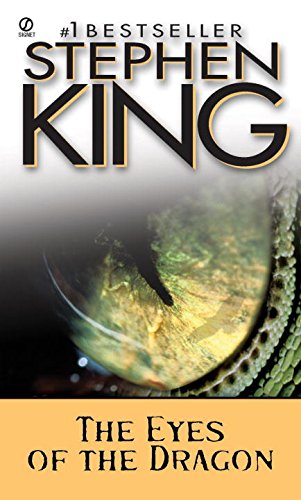 Reading this, you’d think it was one of King’s earlier novels. It certainly doesn’t feel like it came after The Stand—the style is simpler, almost childish (it was reportedly written for his children, after all). That doesn’t mean it’s a bad book, though, because I enjoyed it in a way I haven’t enjoyed his other books, and it was pretty nice to see him tackle a different genre, even if the second half was fairly predictable. It was nice to see an earlier incarnation of King’s chief antagonist, though.
Reading this, you’d think it was one of King’s earlier novels. It certainly doesn’t feel like it came after The Stand—the style is simpler, almost childish (it was reportedly written for his children, after all). That doesn’t mean it’s a bad book, though, because I enjoyed it in a way I haven’t enjoyed his other books, and it was pretty nice to see him tackle a different genre, even if the second half was fairly predictable. It was nice to see an earlier incarnation of King’s chief antagonist, though.
Only fifteen books this year. That's quite a drop for me given how many I managed to read only a few years before, but that's what happens when you don't have an hour long ride on the train to and from work every day I suppose. I need to do something about that.
To take a look at reviews from previous years, including more on The Walking Dead, Robert Jordan's The Wheel of Time, and a bunch of books by Robert A. Heinlein, check out what I read in 2014 and 2013.
 This was my second time reading through The Walking Dead collection of omnibuses, and this volume is easily the most memorable. By a long shot. It’s relentless, breakneck, and leaves off with one of the best, and admittedly worst, cliffhangers I’ve read in comics. It’s a shame the show couldn’t quite capture the horror and pure suffering of that moment.
This was my second time reading through The Walking Dead collection of omnibuses, and this volume is easily the most memorable. By a long shot. It’s relentless, breakneck, and leaves off with one of the best, and admittedly worst, cliffhangers I’ve read in comics. It’s a shame the show couldn’t quite capture the horror and pure suffering of that moment.The Walking Dead Omnibus Volume 3 by Robert Kirkman and Charlie Adlard
 Reading this through for the second time, this is where I caught up to the show. It’s interesting to see the dichotomy between the two, and worth noting a few of the scenes I’d thought rather brilliant on the show actually stemmed from the comic, though I didn’t remember them. And the parts that did not come from the comic? By far the weakest of the show.
Reading this through for the second time, this is where I caught up to the show. It’s interesting to see the dichotomy between the two, and worth noting a few of the scenes I’d thought rather brilliant on the show actually stemmed from the comic, though I didn’t remember them. And the parts that did not come from the comic? By far the weakest of the show. The Walking Dead Omnibus Volume 4 by Robert Kirkman and Charlie Adlard
 This volume is almost entirely set up (which leads me to wonder about the current season of The Walking Dead and where it’s headed), particularly the last of the four chapters. There were a few amazing standout moments, though, and the backmatter is nice, what little there is. I was hoping the Michonne story from Playboy would be reprinted, though, especially since it’s mentioned. But no dice.
This volume is almost entirely set up (which leads me to wonder about the current season of The Walking Dead and where it’s headed), particularly the last of the four chapters. There were a few amazing standout moments, though, and the backmatter is nice, what little there is. I was hoping the Michonne story from Playboy would be reprinted, though, especially since it’s mentioned. But no dice.Harry Potter and the Prisoner of Azkaban by J.K. Rowling
 If any book in the series can really be pointed to as the one to cement Harry Potter’s place in literature, I’d have to say it’s this one. This is where everything really starts to take shape and build beyond its childish foundations, exploring some far darker and humanistic themes compared to the first two. This book also led to arguably the best of the film adaptations, so extra kudos for that.
If any book in the series can really be pointed to as the one to cement Harry Potter’s place in literature, I’d have to say it’s this one. This is where everything really starts to take shape and build beyond its childish foundations, exploring some far darker and humanistic themes compared to the first two. This book also led to arguably the best of the film adaptations, so extra kudos for that.The Walking Dead Omnibus Volume 5 by Robert Kirkman and Charlie Adlard
 Now that’s more like it! This is one hell of a volume, hitting like a ton of shit-stained bricks right from the get-go with an insanely emotional hook. My only issue, and it’s pretty mild after such a wild ride, is that this volume cuts halfway through a twelve issue arc. Also, the lacking extras in the back make this “definitive” edition of the series not quite feel like one.
Now that’s more like it! This is one hell of a volume, hitting like a ton of shit-stained bricks right from the get-go with an insanely emotional hook. My only issue, and it’s pretty mild after such a wild ride, is that this volume cuts halfway through a twelve issue arc. Also, the lacking extras in the back make this “definitive” edition of the series not quite feel like one.Different Seasons by Stephen King
 This book offers very different stories from King, although they’re obviously some of his best (and most easily adaptable) tales. “Rita Hayworth and Shawshank Redemption” was a bit weak compared to The Shawshank Redemption, which consolidated the characters and made for a better dramatization. “Apt Pupil” was dark as all heck, but probably my favorite of the bunch—and the most consistent. I really need to see the film version. If you’ve seen The Stand, “The Body” was generally on par it, with each great in their own way. “The Breathing Method,” the only one yet to be adapted, was the weakest of the bunch, and unlike the other stories, felt rather incomplete. It was something of a letdown after the two middle shorts.
This book offers very different stories from King, although they’re obviously some of his best (and most easily adaptable) tales. “Rita Hayworth and Shawshank Redemption” was a bit weak compared to The Shawshank Redemption, which consolidated the characters and made for a better dramatization. “Apt Pupil” was dark as all heck, but probably my favorite of the bunch—and the most consistent. I really need to see the film version. If you’ve seen The Stand, “The Body” was generally on par it, with each great in their own way. “The Breathing Method,” the only one yet to be adapted, was the weakest of the bunch, and unlike the other stories, felt rather incomplete. It was something of a letdown after the two middle shorts.Jurassic Park by Michael Crichton
 I’d forgotten just how much more gruesome this book is compared to its adaptation. It’s also far more technical, which is par for the course with Crichton. Interestingly, the ending leaves far less room for a sequel than the film, but we all know how that went.
I’d forgotten just how much more gruesome this book is compared to its adaptation. It’s also far more technical, which is par for the course with Crichton. Interestingly, the ending leaves far less room for a sequel than the film, but we all know how that went.The Lost World by Michael Crichton
 Reading this back-to-back with Jurassic Park was a bit of a bad idea, as Crichton’s style changed dramatically between the two—from cold, methodical and overly technical to character-centric, loose and almost incoherent. Really, The Lost World reads like an early Dan Brown novel, and I don’t mean that as a compliment.
Reading this back-to-back with Jurassic Park was a bit of a bad idea, as Crichton’s style changed dramatically between the two—from cold, methodical and overly technical to character-centric, loose and almost incoherent. Really, The Lost World reads like an early Dan Brown novel, and I don’t mean that as a compliment.21st Century Tank Girl by Alan Martin, Jamie Hewlett, et al.
 I’d never read Tank Girl before, but I love the movie despite its flaws and have loved Jamie Hewlett’s work since the Gorillaz’ debut, so I, of course, backed this beauty on Kickstarter. And I’m glad I did. Though parts of the anthology are bit more miss than hit, it’s a visually entertaining tour through the character’s psyche and a truly well-made book to boot.
I’d never read Tank Girl before, but I love the movie despite its flaws and have loved Jamie Hewlett’s work since the Gorillaz’ debut, so I, of course, backed this beauty on Kickstarter. And I’m glad I did. Though parts of the anthology are bit more miss than hit, it’s a visually entertaining tour through the character’s psyche and a truly well-made book to boot.Fade In: From Idea to Final Draft – The Writing of Star Trek: Insurrection by Michael Piller
 Though it was never formally published, every Star Trek fan owes it to themselves to give this a read (go ahead, it's free). Piller, after all, played a hefty role in what made the series so wonderful around the TNG and DS9 era, and this behind-the-scenes look into what may be one of the weaker film entries truly brings some interesting facts that will have you wondering what could have been. And it’s a quick read—at nearly 250 pages, I still finished it in less than a day
Though it was never formally published, every Star Trek fan owes it to themselves to give this a read (go ahead, it's free). Piller, after all, played a hefty role in what made the series so wonderful around the TNG and DS9 era, and this behind-the-scenes look into what may be one of the weaker film entries truly brings some interesting facts that will have you wondering what could have been. And it’s a quick read—at nearly 250 pages, I still finished it in less than a dayStar Trek Memories by William Shatner with Chris Kreski
 Part personal memoir, part documentary on the production of the original Star Trek series, this book shed light on many aspects of the show I hadn’t previously known, and while it could have gone a bit further, it was a lovely ride down memory lane.
Part personal memoir, part documentary on the production of the original Star Trek series, this book shed light on many aspects of the show I hadn’t previously known, and while it could have gone a bit further, it was a lovely ride down memory lane.Harry Potter and the Goblet of Fire by J.K. Rowling
 Poor Cedric. I really felt for the kid this time round, far more so than in my previous reading or ever from the movie. Goes to show you how subsequent re-readings can be helpful. His demise also brought me a bit out of my comfort zone in regard to this series, though only so much—the more typical trappings of the earlier books remain, and it’s really not until the next book that Rowling goes zero dark thirty.
Poor Cedric. I really felt for the kid this time round, far more so than in my previous reading or ever from the movie. Goes to show you how subsequent re-readings can be helpful. His demise also brought me a bit out of my comfort zone in regard to this series, though only so much—the more typical trappings of the earlier books remain, and it’s really not until the next book that Rowling goes zero dark thirty. The Goldfinch by Donna Tartt
 Recommended by a coworker, this was a weird book, and made me realize, more than anything else, how prominent horn-rimmed glasses are in literature. It’s like no one knows another descriptor or another type. What’s up with that? This book also didn’t have much of an ending, though the path to get there was fun and fancy free regardless of its tendency to edge into that absurd secret-that-could-simply-end-the-book-at-any-moment territory.
Recommended by a coworker, this was a weird book, and made me realize, more than anything else, how prominent horn-rimmed glasses are in literature. It’s like no one knows another descriptor or another type. What’s up with that? This book also didn’t have much of an ending, though the path to get there was fun and fancy free regardless of its tendency to edge into that absurd secret-that-could-simply-end-the-book-at-any-moment territory.The “Genius” by Theodore Dreiser
 An odd book, this is reportedly very autobiographical in nature, with the afterword included in this edition noting how it required several adjustments after being written while Dreiser was still reeling from the recounted events. Really, that’s no way to reflect on something, and the ambling, repetitive and, at times, boring nature of the narrative gives us our reason why.
An odd book, this is reportedly very autobiographical in nature, with the afterword included in this edition noting how it required several adjustments after being written while Dreiser was still reeling from the recounted events. Really, that’s no way to reflect on something, and the ambling, repetitive and, at times, boring nature of the narrative gives us our reason why.The Eyes of the Dragon by Stephen King
 Reading this, you’d think it was one of King’s earlier novels. It certainly doesn’t feel like it came after The Stand—the style is simpler, almost childish (it was reportedly written for his children, after all). That doesn’t mean it’s a bad book, though, because I enjoyed it in a way I haven’t enjoyed his other books, and it was pretty nice to see him tackle a different genre, even if the second half was fairly predictable. It was nice to see an earlier incarnation of King’s chief antagonist, though.
Reading this, you’d think it was one of King’s earlier novels. It certainly doesn’t feel like it came after The Stand—the style is simpler, almost childish (it was reportedly written for his children, after all). That doesn’t mean it’s a bad book, though, because I enjoyed it in a way I haven’t enjoyed his other books, and it was pretty nice to see him tackle a different genre, even if the second half was fairly predictable. It was nice to see an earlier incarnation of King’s chief antagonist, though.Only fifteen books this year. That's quite a drop for me given how many I managed to read only a few years before, but that's what happens when you don't have an hour long ride on the train to and from work every day I suppose. I need to do something about that.
To take a look at reviews from previous years, including more on The Walking Dead, Robert Jordan's The Wheel of Time, and a bunch of books by Robert A. Heinlein, check out what I read in 2014 and 2013.
Comments
Post a Comment